Creating a nurturing and stimulating environment for your baby is crucial to their early development. By setting up a safe and engaging space, you encourage independent exploration and learning. Applying Montessori principles at home is wonderful. You and your baby will love it.
It isn’t as hard as you think to apply Montessori principles at home. It’s essential to provide freedom of movement, which means avoiding restrictive items like baby walkers and bouncers, thus allowing natural growth and development. Always treat your baby with respect by speaking gently and observing their cues to meet their needs effectively.
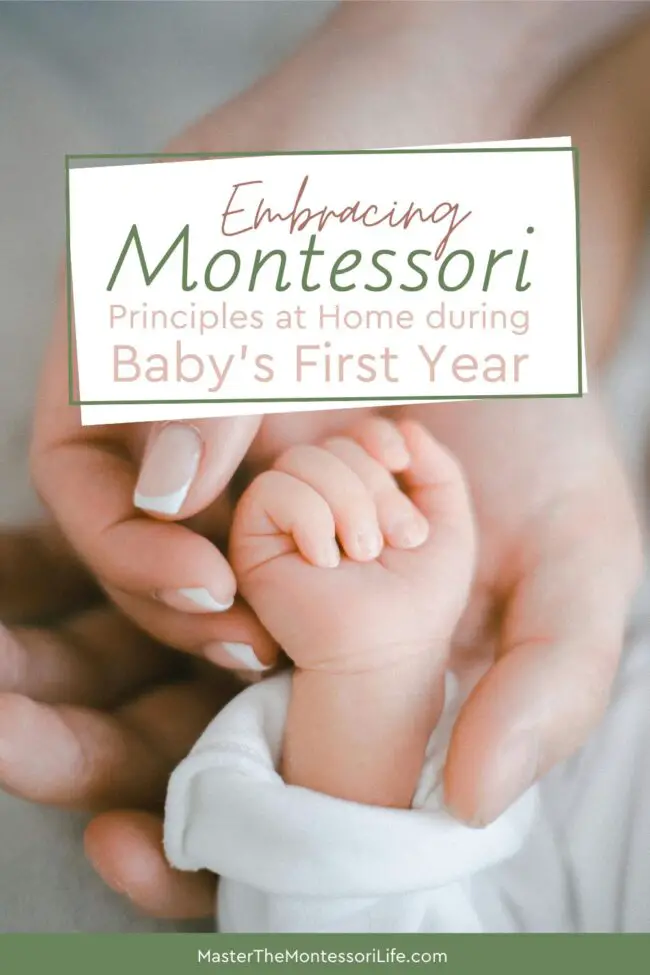
Observation
Observation is key to tailoring activities that match your baby’s developmental stage, ensuring that you provide the right support at the right time. Fostering independence is another cornerstone. Simple acts like letting your baby grasp their bottle or explore toys on their own can significantly boost their confidence and motor skills.
Practical tips for adaptation at home include using a floor bed instead of a crib, arranging toys on low shelves, and creating a serene sleep environment with soft lighting and minimal decor. Think about everything from a baby’s perspective. Lie down on the floor if you have to see the world from their perspective and go from there.

Consistency
Babies (and children in general) actually do love consistency and predictability. Establishing consistent daily routines for feeding, sleeping, and playtime helps your baby as well as you. Your baby will feel secure and understand what to expect. You will be able to develop a schedule and a solid plan.
You don’t give up your life when you have a baby. Just as you incorporate your baby’s needs into your life, you incorporate your baby into your life and responsibilities. Incorporating your baby into daily activities, such as dressing and household chores, can encourage language development and understanding.
Regular outdoor exploration also provides invaluable sensory experiences, supporting your baby’s cognitive and emotional growth. This will be a great time to ground yourself, reflect on life and your activities, bring mindfulness to what is truly important and don’t forget that your baby watches everything you do, even take breaks to relax and enjoy life.

Montessori Principles at Home
Parents and caregivers play a pivotal role in this process. You are the leaders in bringing great experiences to your baby and let your baby venture out to learn more about the world around us. You are more important than you know.
Patience and trust in your baby’s ability to learn at their own pace, along with mindful interactions, create a supportive environment. Continuous learning about Montessori principles and early childhood development ensures that you stay informed and effective in your approach. Begin applying the principles of the Montessori philosophy by being the catalyst for setting up an amazing environment for your baby.
Thrive
By applying these principles, you enable your baby to thrive in their early years, fostering a lifelong love of learning. For ongoing support and resources, engaging with a community of like-minded parents and educators can provide valuable insights and encouragement.
You might also enjoy these relevant topics:
- Montessori from Birth: Why Start from Day One
- 10 Essential Montessori Toys for Your Baby’s First Year
- The First Year of Life: Developmental Stages and Key Milestones
- How to Start doing Montessori with your Baby
- A Comprehensive Montessori Guide for New Parents
- Strategies for Fostering Independence in Babies
Montessori Wooden Baby Toy Set – 6 Pieces of Rattles, Push Car and Newborn Toys for PgUp Baby Play Gym Wooden Baby Gym with 7 Toys, Foldable Wooden Play Gym Frame Hanging
PgUp Baby Play Gym Wooden Baby Gym with 7 Toys, Foldable Wooden Play Gym Frame Hanging hahaland High Contrast Baby Flashcards – Black and White Infant Baby Cards 0-6 Months Tummy Time
hahaland High Contrast Baby Flashcards – Black and White Infant Baby Cards 0-6 Months Tummy Time MORITECK Spinning Drum, Montessori Toys for Babies 6-12 Months, Infant Kids Developmental Wooden Toy for Boy
MORITECK Spinning Drum, Montessori Toys for Babies 6-12 Months, Infant Kids Developmental Wooden Toy for Boy Montessori Play Kit for 0-6 Month Baby Tummy Time Interactive Toys Baby Brain Development Toys Rattle
Montessori Play Kit for 0-6 Month Baby Tummy Time Interactive Toys Baby Brain Development Toys Rattle Montessori Babies
Montessori Babies
- Motor Skills for Hands the Montessori Way
 The Montessori Method puts a special focus on developing motor skills for hands, recognizing how essential they are for independence, confidence, and curiosity.
The Montessori Method puts a special focus on developing motor skills for hands, recognizing how essential they are for independence, confidence, and curiosity. - Simplify Toy Rotation with Montessori Checklist
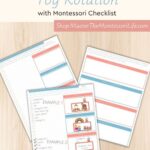 Make Toy Rotation Simple and Fun with the Montessori Toy Rotation Checklist Labels and Chart. Organizing your child’s play area shouldn’t be stressful! That’s why the Montessori Toy Rotation Checklist, Labels & Chart is every parent’s new best friend when it comes to keeping toys fresh and shelves inviting.
Make Toy Rotation Simple and Fun with the Montessori Toy Rotation Checklist Labels and Chart. Organizing your child’s play area shouldn’t be stressful! That’s why the Montessori Toy Rotation Checklist, Labels & Chart is every parent’s new best friend when it comes to keeping toys fresh and shelves inviting. - Sight Words for Toddlers in Montessori Language Arts
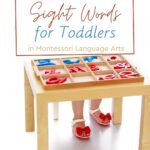 When you look into Montessori Language Arts, you will find a unique and engaging approach that helps toddlers master these important words.
When you look into Montessori Language Arts, you will find a unique and engaging approach that helps toddlers master these important words. - Sensitive Periods in Child Development
 These sensitive periods are unique windows of opportunity that help children easily absorb important skills and concepts.
These sensitive periods are unique windows of opportunity that help children easily absorb important skills and concepts. - Montessori Practical Life Step 1 Guide
 Montessori Practical Life Step 1 Checklists The Easy Way to Keep Your Montessori Journey Organized: Discover an affordable, printable checklist set that helps you organize lessons, track progress, and ensure Practical Life success for every child.
Montessori Practical Life Step 1 Checklists The Easy Way to Keep Your Montessori Journey Organized: Discover an affordable, printable checklist set that helps you organize lessons, track progress, and ensure Practical Life success for every child. - How to Incorporate Montessori Activities into Your Baby’s Daily Routine
 Well, let me get started by telling you that it isn’t just incorporating it into your baby’s daily routine… you need to make it a part of your own as well!
Well, let me get started by telling you that it isn’t just incorporating it into your baby’s daily routine… you need to make it a part of your own as well!






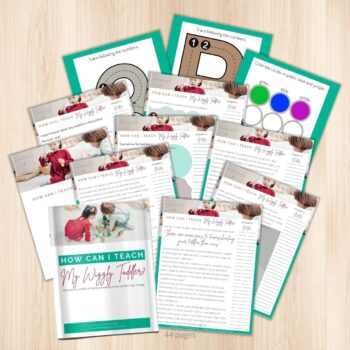
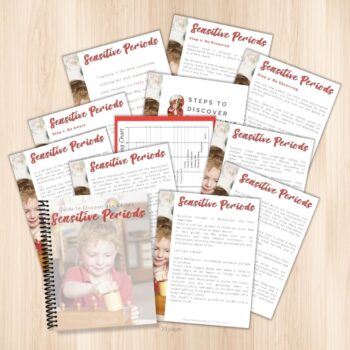










Leave a Reply